Team
Instituto de Medicina Molecular João Lobo Antunes (iMM)
The group of Prof Miguel Castanho is focused on the physical principles that govern interactions at the molecular level of clinically relevant compounds with model cell systems, with the objective of developing new drugs.
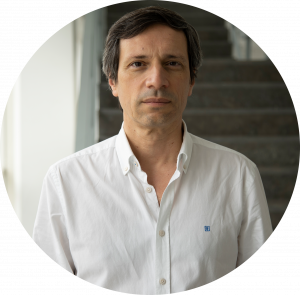
Prof. Miguel Castanho has expertise in the design and study of membrane-active peptides using a wide variety of biophysical methods, as well as structural biology approaches. One of the main focuses of his research is the study of peptides able to traverse the BBB. Prof Miguel Castanho is the group leader of the IMM team who is developing the trans-BBB shuttle peptides and the coordinator of the La Caixa/BREAST-BRAIN-N-BBB consortium.
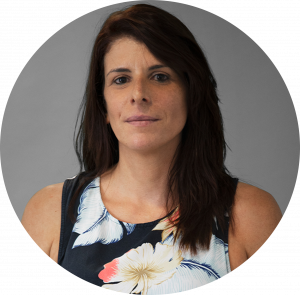
Vera Neves provides support in biological assays in vitro, and coordinates all scientific experimental planning, and coordination of activities.
Vera Neves holds a PhD in Bionanotechnology, obtained as part of a Marie Curie Network – CARBIO, by the University of Surrey, UK. Vera is currently senior research staff at iMM and an invited assistant professor at Faculty of Medicine from Lisbon University. Her work has centered around drug delivery systems, blood-brain barrier, peptides, neurotherapies and nanomedicine.
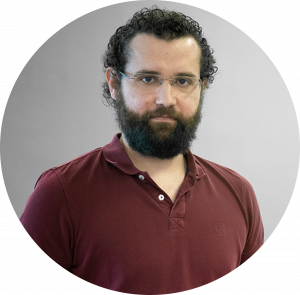
Marco Cavaco is responsible for the assays with the cellular models of the BBB.
Marco Cavaco did his PhD at Faculty of Medicine, University of Lisbon. The main focus of his work is the development of preclinical models (e.g., in vitro BBB models, spheroids); evaluation of the activity of active peptides (membrane penetration, ROS production, apoptosis, organelle/membrane interaction, BBB translocation); characterization of peptides: biophysical (circular dichroism, dynamic light scattering, lipid interaction) and biological (microscopy/flow cytometry).

Catarina Gonçalves is responsible for the assays with the cellular models of the BBB.
Catarina Gonçalves is currently doing her PhD, as part of the iMM’s international PhD Program – LisbonBioMed, on Anticancer activity of a minibody against triple negative breast cancer brain metastases.
.
CICbiomaGUNE, Basque Research and Technology Alliance
The group of Dr. Jordi Llop has experience in the use of in vivo imaging, and especially positron emission tomography (PET) and single photon emission computerized tomography (SPECT), to determine the distribution pattern of new drug candidates and their capacity to accumulate in the target tissue (tumor) in different animal models.

Dr. Jordi Llop has a multidisciplinary training and track record of experience in different disciplines, including chemistry, radiochemistry, in vivo imaging, and nanotechnology. His early training focused on the synthesis and characterisation of metallic complexes incorporating polyhedral heteroboranes (boron clusters). Post-doctoral appointments at Navarra University and at Uppsala University PET Centre and industrial experience at IAT-PRBB provided the opportunity to conduct clinical and pre-clinical drug-development research, gain experience of different in vivo imaging modalities and actively interact with big pharmaceutical companies.
Dr. Jordi Llop is the group leader of CICbiomaGUNE team who masters molecular imaging techniques to follow the biodistribution and therapeutic activity of anticancer drugs.
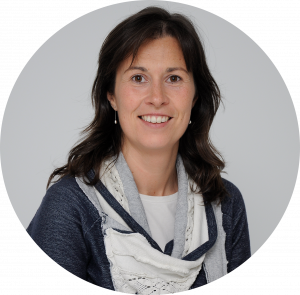
Vanessa Gómez-Vallejo provides support in radiolabelling, and coordinates all scientific experimental planning, and coordination of activities.
Vanessa Gómez-Vallejo did her PhD studies in Radiochemistry at Ramon Llull University, Barcelona, Spain. Vanessa is an expert in radiochemistry and nuclear imaging, with more than ten years of industrial and academic experience.
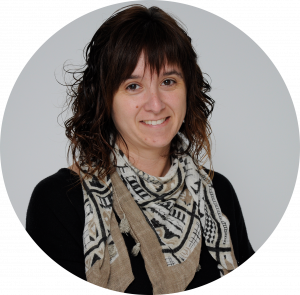
Zuriñe Baz leads all image reconstruction and analysis conducted within the project. Also, she will lead all communication activities conducted at Dr. Llop’s group.
Zuriñe Baz obtained her BsC in Chemical Sciences at University of Basque Country, Spain and has more than ten years of experience in image analysis.
.
Institute for Medicines (iMed)
The group of Prof João Gonçalves has a strong background in biomolecular and biopharmaceutical engineering, aiming the investigation, analysis, and integration of genomic and proteomic data towards the design of therapeutic proteins.

Prof. João Gonçalves developed methodologies to generate small domain antibodies with high affinity and chimerized with different specificities. At present, he considers the use of intracellular and extracellular small-domain antibodies to be exemplary in rational protein engineering strategies. He has applied stability engineering strategies to the construction of hyper-stable and effective small antibodies. The development of better characterization assays and monitoring of antibody therapy is another part of his work, including immunogenicity and PK. Prof. João Gonçalves is the group leader of the iMED team who is devoted to anticancer antibody engineering.
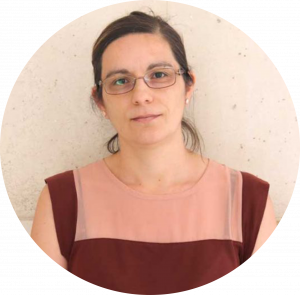
Paula Brito provides support in the development of the minibody-based fusion construct.
Paula Brito holds a degree in Pharmaceutical Sciences and a PhD in Pharmacy, in the specialty of Biochemistry, by the University of Coimbra. Paula has a high background of redox biology and more than 10 years of experience in gene therapy.
.
Biodonostia Health Research Institute
The group of Dr Charles Lawrie is focused on the discovery and validation of novel biomarkers and therapeutic targets for cancer using hypothesis-driven and high-throughput data-drive approaches. The techniques employed range from pre-clinical murine models sygenic, xenograft and knock-out models to involvement in clinical trials, use of next generation sequencing and microarray and functional screens to the use of mathematical models of cancer progression and intratumoral heterogeneity.
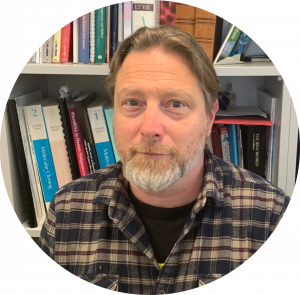
Dr. Charles Lawrie has a great deal of expertise in both the development and delivery of pre-clinical cancer models in many cancer types including triple negative breast cancer, hematological cancers, and colorectal cancer. Dr Charles Lawrie is the group leader of the BIODONOSTIA team who excels in developing animal models of cancer diseases.
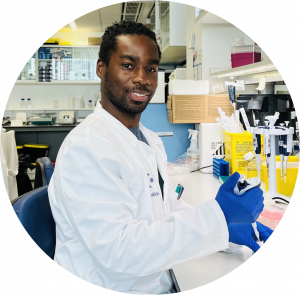
Stephane Nemours is responsible for the development of the TNBC-BM animal model.
Stephane Nemours holds a PhD in Biochemistry, Molecular Biology and Biomedicine by the Universitat Autònoma de Barcelona, Spain.
.


